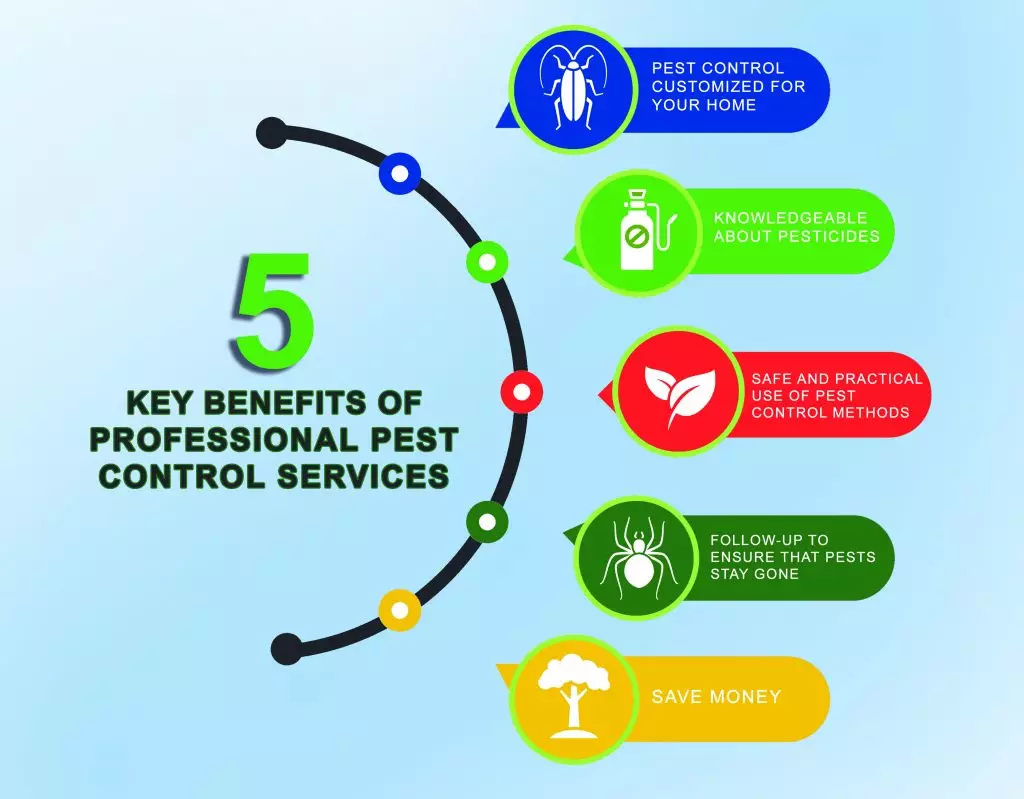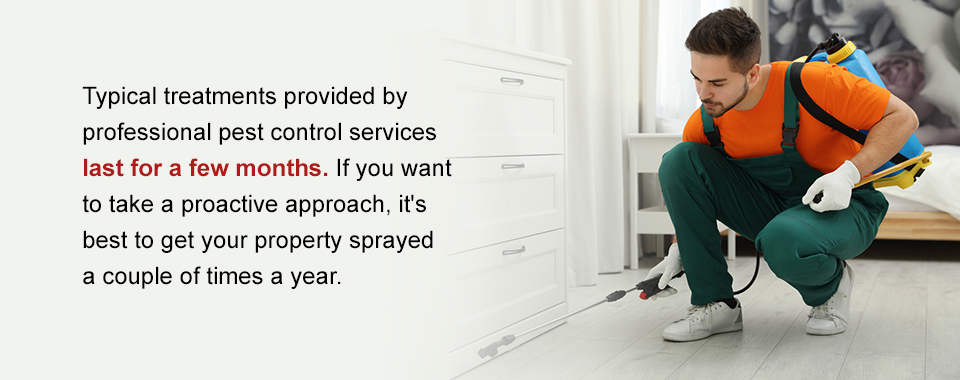Comprehensive Pest Control Clovis Solutions for every single Requirement
Comprehensive Pest Control Clovis Solutions for every single Requirement
Blog Article
Understanding the Numerous Methods to Parasite Control: A Comprehensive Overview

Natural Bug Control Methods
Using green strategies such as companion planting and biological pest control is important for efficiently handling bugs in farming setups. Companion growing entails expanding various plants in distance to hinder pests, enhance nutrient uptake, and boost total plant wellness.
Organic parasite control includes presenting natural predators or microorganisms to manage pest populations. Ladybugs, for circumstances, prey on aphids, controlling their numbers without the demand for chemical pesticides. Another instance is the use of Bacillus thuringiensis (Bt), a germs that targets certain insect parasites while being safe to people, animals, and useful bugs.
These environment-friendly methods not only reduce the reliance on synthetic pesticides but also help protect biodiversity and dirt health and wellness. By including natural parasite control approaches into farming practices, farmers can accomplish lasting parasite administration while reducing negative influence on the atmosphere.

Chemical Parasite Control Solutions
Along with natural pest control approaches, the application of chemical pest control options plays a considerable role in efficiently handling pest populaces in agricultural environments. Chemical insect control solutions are created to target particular bugs that may create considerable damage to plants. These services commonly include artificial chemicals that are designed to eliminate pests swiftly and efficiently.
Among the key benefits of chemical pest control solutions is their performance in managing parasite infestations widespread. Farmers can use these options making use of numerous approaches such as splashing, fumigation, or seed therapy to shield their crops from unsafe pests, weeds, and conditions. In addition, chemical bug control remedies are relatively simple to use and can give quick outcomes, helping farmers guard their yields and decrease financial losses.
However, it is important to use chemical pest control services carefully to lessen potential negative influence on the atmosphere, non-target microorganisms, and human health. Proper application strategies, adherence to safety and security standards, and normal monitoring are important to ensure the liable usage of chemical insect control services in agricultural methods.
Organic Pest Control Approaches
Organic bug control comes close to leverage all-natural killers or virus to take care of insect populaces in agricultural settings efficiently. One common organic control method is the intro of all-natural enemies, such as ladybugs or parasitic wasps, to target particular pests.
One more organic control method includes using pathogens like viruses, fungis, or germs to infect and eliminate insects. These microbial agents can be sprayed on plants or introduced right into the dirt to battle numerous pests without harming advantageous insects or various other wildlife. Furthermore, using pheromones to interfere with the mating patterns of insects is an additional efficient biological control approach. By interfering with their recreation, this technique aids to decrease pest populaces without the need for chemical intervention. In general, biological insect control strategies supply a sustainable and targeted option to pest monitoring in farming.
Integrated Parasite Monitoring (IPM)
Integrated Bug Monitoring (IPM) is an extensive strategy that incorporates numerous parasite control methods to efficiently take care of and decrease pest populaces in agricultural systems. IPM focuses on long-lasting avoidance of insects with a combination of biological, cultural, physical, and chemical control approaches. By integrating these informative post different methods, IPM aims to minimize dependence on chemical pesticides, decrease ecological impact, and promote sustainable pest administration techniques.
One key facet of IPM is using biological controls such as all-natural predators, bloodsuckers, and microorganisms to control insect populaces. This technique harnesses the power of nature to keep a balance in between insects and their natural enemies without causing harm to the atmosphere.
Furthermore, IPM involves social practices like plant rotation, cleanliness, and habitat adjustment to produce undesirable problems for pests and interrupt their life process. Physical controls such as traps, barriers, and mulches are likewise used to stop parasite problems.
Mechanical and Physical Pest Control Strategies
Making use of non-chemical methods, such as mechanical and physical bug control techniques, is a vital element of extensive insect more info here administration techniques, building on the structure of Integrated Insect Monitoring's all natural strategy. Mechanical insect control includes using physical obstacles or catches to avoid parasites from accessing and damaging crops or structures. This technique can include methods like installing displays on windows, making use of row covers in agriculture, or utilizing sticky traps to capture pests.
Physical pest control methods, on the various other hand, concentrate on directly getting rid of insects with physical ways. For example, making use of warmth therapies to remove bed insects or vacuuming up bugs like spiders or ants can be effective ways to manage problems without making use of chemicals. By including these mechanical and physical parasite control methods into an Integrated Insect Administration strategy, experts and individuals can minimize dependence on pesticides while still useful link properly managing pest populations and minimizing damages.
Conclusion

In enhancement to natural pest control methods, the usage of chemical pest control remedies plays a substantial duty in successfully handling pest populaces in agricultural environments.One of the vital advantages of chemical pest control options is their efficiency in regulating parasite invasions on a big scale.Integrated Pest Monitoring (IPM) is a detailed technique that integrates various bug control methods to properly handle and decrease pest populaces in farming systems.Utilizing non-chemical approaches, such as mechanical and physical parasite control techniques, is a crucial facet of extensive bug management methods, constructing upon the structure of Integrated Parasite Monitoring's all natural method. By including these physical and mechanical insect control strategies into an Integrated Insect Monitoring plan, individuals and specialists can decrease dependence on pesticides while still effectively managing pest populations and reducing damages.
Report this page